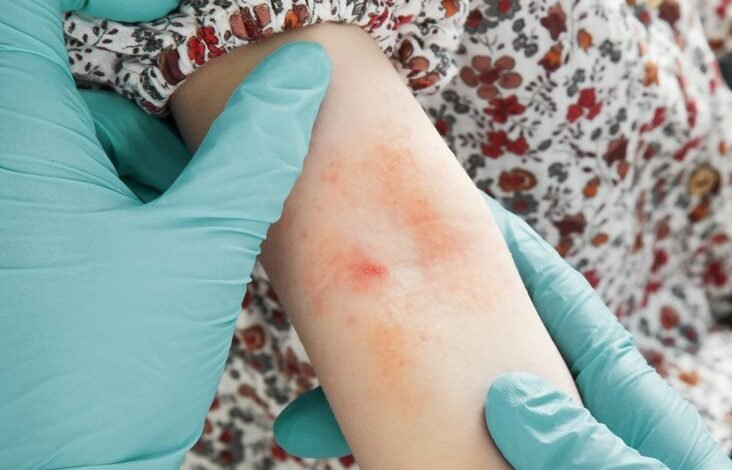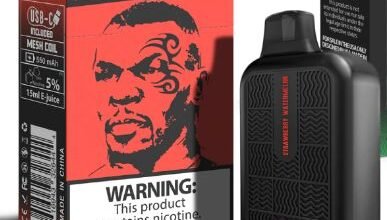CVID, Psoriasis, and Lichen Planus: Understanding the Connection
CVID, Psoriasis, and Lichen Planus: Understanding the Connection

Living with a chronic health condition can impact every facet of life—physically, emotionally, and socially. For individuals managing conditions like Common Variable Immunodeficiency (CVID), Psoriasis, and Lichen Planus, the challenges can feel even more complex, particularly when these conditions coexist. This blog will explore these three conditions in detail, examine their potential interplay, and provide actionable insights on diagnosis, management, and living well despite the challenges.
Whether you’re battling these conditions yourself, supporting a loved one, or eager to learn about the latest research, this guide offers knowledge and reassurance in equal measure.
Introduction to CVID, Psoriasis, and Lichen Planus
What is CVID?
Common Variable Immunodeficiency (CVID) is a rare immune system disorder characterized by low levels of immunoglobulins (antibodies) in the blood. Antibodies play a vital role in defending the body against infections, so individuals with CVID are more susceptible to recurring infections, particularly of the respiratory system. Common symptoms include frequent sinusitis, pneumonia, fatigue, and gastrointestinal issues.
What is Psoriasis?
Psoriasis is a chronic autoimmune skin condition in which the immune system speeds up skin cell production. This results in patches of thick, red skin covered with silvery scales, most commonly found on the scalp, elbows, and knees. Symptoms such as itchiness, cracking, and pain can severely impact a person’s quality of life.
What is Lichen Planus?
Lichen Planus is another immune-mediated disorder that affects the skin, mucous membranes, hair, and nails. Patients typically experience flat, purplish, itchy bumps on the skin, although oral involvement is also common, with white, lacy patches or sores appearing inside the mouth. While the exact cause of Lichen Planus is unknown, autoimmune dysfunction is a suspected contributor.
These conditions disrupt daily life through physical symptoms, emotional tolls, and, often, social stigma. Understanding their potential connections—especially in individuals with underlying immune system disorders such as CVID—is critical for developing effective coping methods and treatment plans.
Understanding the Interplay Between CVID, Psoriasis, and Lichen Planus
The Immune System at the Center
CVID affects the immune system’s ability to function properly, leaving the body vulnerable to infections and other complications. Though CVID is primarily classified as an immunodeficiency disorder, studies suggest a possible connection between CVID and autoimmune diseases, including Psoriasis and Lichen Planus.
Autoimmune conditions occur when the immune system mistakenly attacks the body’s own healthy tissues. With CVID, the immune system’s mismanagement may trigger such autoimmune reactions, potentially leading to the development of Psoriasis or Lichen Planus. Research highlights compelling intersections:
- A subset of CVID patients develops autoimmune conditions, ranging from skin disorders to thyroiditis and rheumatoid arthritis.
- The immune dysregulation in CVID may contribute to systemic inflammation, predisposing affected individuals to autoimmune skin diseases.
What This Means for Patients
For someone with CVID who begins to experience symptoms of Psoriasis or Lichen Planus—such as red scaly patches or painful oral sores—it’s crucial to consider the immune system’s role. Understanding this connection could lead to earlier diagnosis and targeted treatment, significantly enhancing quality of life.
Diagnosis and Management
Step 1: Diagnosis
Diagnosing CVID, Psoriasis, or Lichen Planus requires clinical expertise and diagnostic testing, as symptoms often overlap with other conditions.
- CVID Diagnosis: Blood tests to measure immunoglobulin levels and the body’s response to vaccines; frequent infections and poor vaccine response can signal CVID.
- Psoriasis Diagnosis: Dermatologists visually examine skin lesions and may take a skin biopsy to confirm the condition and rule out other skin disorders.
- Lichen Planus Diagnosis: Skin or mucosal biopsy is often required. For oral Lichen Planus, dental professionals may take swabs or imaging tests to support diagnosis.
Step 2: Treatment and Management
Each condition requires tailored treatment strategies, yet managing one often has a ripple effect on the others.
- For CVID: Regular immunoglobulin replacement therapy is a mainstay treatment to bolster the immune system against frequent infections. Managing associated autoimmune manifestations may require immunosuppressive medications.
- For Psoriasis: Treatments range from topical corticosteroids and vitamin D analogs to phototherapy and systemic biologic medications targeting specific inflammatory pathways.
- For Lichen Planus: Treatment often includes corticosteroids (topical or systemic) and immune-modulating therapies. For oral forms, patients may also need antiseptic mouthwashes and pain relievers.
Combination care plans are often required, and navigating them calls for collaboration across immunologists, dermatologists, and other specialists.
Living with CVID and Autoimmune Skin Conditions
Finding a rhythm in daily life with CVID, Psoriasis, and/or Lichen Planus may feel daunting, but countless individuals shine a light on what’s possible. Here are some insights and practical tips drawn from real experiences:
- Coping with Flare-ups: Identify triggers that worsen symptoms, such as stress, infections, or exposure to allergens, and work toward minimizing them with lifestyle adjustments.
- Build a Support Network: Connecting with others living with similar conditions—be it through online forums or local support groups—can provide emotional relief and practical ideas on managing symptoms.
- Prioritize Self-Care: Find routines that prioritize rest, healthy nutrition, and activities that bring joy to balance the physical and emotional demands of these conditions.
- Stay Proactive with Care: Follow regular treatment schedules, attend routine medical appointments, and don’t hesitate to voice concerns to healthcare providers. Self-advocacy is vital for long-term health.
The Future of CVID and Autoimmune Research
Advances in medicine inspire hope for those living with these conditions. Researchers are working tirelessly to refine treatment approaches, investigate potential genetic links, and understand the immune system dynamics underlying conditions like CVID, Psoriasis, and Lichen Planus.
Exciting developments include:
- New Biologic Treatments: Targeted therapies for Psoriasis and Lichen Planus show fewer side effects and greater effectiveness than traditional immunosuppressants.
- Gene Therapies: Experimental therapies aim to correct immune deficiencies at the genetic level, potentially offering long-term solutions for CVID.
- Personalized Medicine: Advancements in technology allow tailored treatment plans considering unique genetic and environmental factors.
These breakthroughs promise a brighter, more manageable future for those affected by CVID and autoimmune skin disorders.
Moving Forward with Confidence
Understanding the complex relationship between CVID, Psoriasis, and Lichen Planus is the first step toward better care and improved quality of life. While these conditions present unique hurdles, early intervention, evidence-based treatments, and supportive communities can make all the difference.
If this post resonated with you, consider sharing your stories or questions in the comments below. You may just inspire or help someone on a similar path. No one has to face this alone—there’s a vast world of resources, support, and innovative treatments waiting to help.



